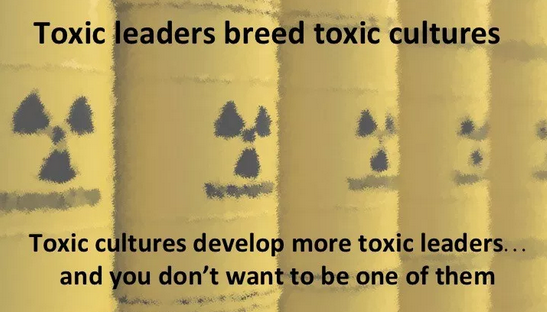Brendan Prout
February 12, 2019
A few friends of mine are struggling with the leadership at their churches, specifically with matters of inconsistency between what is being taught and what is actually being lived out in the ministry culture and leadership culture. People saying one thing to one person or group of people, then saying something completely different to another person or group of people. People in authority abusing that authority to keep others under their thumb through coercion both spiritual and tangible.
And there’s another group of people that have suffered at the hands of such folks and have been wounded deeply – emotionally, spiritually, financially, physically, tangibly. And those folks are getting their wounds torn open afresh and salt poured into it by fellow believers whom seem to have no problem letting the abusive ones continue on in their merry way without consequence.
Having been through a series of unfortunate events in ministry life myself, which include serving under leadership that has actually gone to prison over their catastrophically far reaching sin, and having personally been swindled out of over $100,000 by dishonest leadership at various churches and parachurch organizations over the past 15 years, and having been abused and wounded myself under the heels of such despicable people, and having to live with the real world effects of this abuse, theft, and the scars it has left on my soul, and the lack of trust I now struggle with when even dealing with very reputable leadership, I feel like I can speak to this from a first hand boots-on-the-ground eyewitness perspective.
It’s a thing. Sadly. Shamefully.
It shouldn’t be a thing in churches, but it is. And it needs to be stopped. And the only way it will be stopped is if people who recognize it stop excusing it, looking the other way, stop hoping God will change those toxic leaders Himself without intervention from us, and stop worrying about giving The Church a black eye by publicly mentioning these matters. Stop worrying about being the black sheep in the flock for saying The Emperor has no clothes.
Guess what, people? The Church not only already has a black eye from letting these fierce wolves run rampant in our midst, but as a result of that complacent enabling of toxicity, it is in a state of being perpetually ravaged and abused, because good people just won’t speak up against those abusers.
Wake up, sleepers.
These fierce wolves that Jesus said would rise up from among our midst, they’re here.
Micromanagers. People who say one thing and do another. People who lord it over others with their spiritual authority. People who keep others oppressed at the threat of their jobs and livelihood. People who butt their opinions into matters that are truly inappropriate for them to be involved with in the first place. People who take advantage of others because of their particular role within ministry. People who have fits of rage when they don’t get their way. Blame-shifters. Liars. Cheats. Thieves. Sexual predators. Abusers.
They’re all present in our church leadership – not in all of our churches, but many.
Far too many.
FAR. TOO. MANY.
I am grateful that some instances of calling out the patterns of toxic leadership has already begun, with the SBC recently recognizing its generational sins of racism and owning that. But then just a month later, from the same association of churches comes the news of over 700 instances of the sexual abuse of children that has been swept under the rug.
This has got to STOP.
People, Jesus does NOT need you to protect him. He already showed that in the garden when Peter stepped up to defend him and cut some poor guy’s ear off with a sword. Jesus healed that guy and rebuked Peter. He’s got this. He does not need your help.
Jesus is fully capable of defending Himself, His reputation, and moreover, His Bride, The Church.
He does NOT need you to sweep horrible things under the rug for the sake of making her without blemish or spot.
Do you understand that? Just in the same way that we are not capable of saving ourselves or washing ourselves spiritually clean, we are NOT capable of washing clean the garments of The Bride of Christ, The Church.
JESUS will do that HIMSELF. NOT YOU.
Instead, He wants us to pay attention to those passages about how we treat each other. Especially the littlest ones.
Better to be thrown in to the sea with a millstone tied around your neck than to cause one of these little ones to stumble, Jesus says.
So what the heck, Church??
What about that do you not get???
Even where Jesus gives us instructions in Matthew 18 about resolving conflict, particularly where it comes to sin, He tells us that when someone refuses to hear you out, you are to TELL IT TO THE CHURCH. NOT SWEEP IT UNDER THE RUG.
Let’s be clear: the context and application of “Let love cover over a multitude of sins” in 1 Peter 4:8 does NOT mean sweep under the rug the horrible things people have done to others and in doing so, re-victimize the victims!!!!! Look at this verse’s context within the rest of the chapter. It clearly speaks to not joining in with sin, and instead serving one another. It’s not an excuse to excuse sin.
1 Corinthians 5 tells us that where it comes to those in rampant sin patterns that are harmful to others, those people are to be removed from our midst. We’re not even supposed to have anything to do with them, not even have a meal.
To be clear, table fellowship is super important to Jesus. It’s where most ministry takes place in the gospels. Think about it. Nearly every gospel account has Jesus either on the way to a meal, at a meal, or on his way out from a meal. His last meal together with the disciples is something we are called to remember and imitate. His upcoming wedding feast is something we’re all looking forward to. And the early Church understood this – they had meals with one another daily, sharing fellowship and resources and remembrance and teaching over the breaking of bread, as we are instructed to do likewise.
And Jesus himself and through Paul both said to cut that fellowship off with certain people who hurt others. Forgive them, yes. But we are not to receive them back until there is reconciliation.
Forgiveness and reconciliation are NOT the same thing. It is on the part of the one injured to forgive. It is on the part of the one who has done the injuring to be reconciled to the one hurt. Two different things.
Forgiveness is giving up the right to revenge, the right to hurt someone back for hurting you.
Reconciliation is making amends to someone you hurt. Making reparations. Committing to not doing it again, and PROVING IT.
The proving it part can take a long time. Sometimes it absolutely has to, where there has been deep hurt. Trust must be earned, and when someone has dug themselves a pit, it’s going to take a lot time to fill that pit in and make it level ground again. And to go above and beyond, like Zaccheus the tax collector in Luke 19:8. THAT is reconciliation. And Jesus attests that sort of attitude and response as salvation coming to the house.
Where failure of leadership is involved, we are under no obligation to continue to follow leaders who clearly don’t follow Christ, as evidenced by their actions. Just because someone names the name of Christ does not make him a follower of Christ. We are to follow those who follow Christ. Not the fakes.
Jesus himself says there will be those who call out to Him on that last day saying, “Didn’t we do this or that in Your Name?” and He will say, “Away from me! I never knew you. You honor me with your lips, but your hearts are far from me.”
I have sadly firsthand witnessed hundreds of religious people who fall into this category, in churches (I’ll use that term loosely here) that claim to be Christian. They think they’re Christians, but they’re not. This is a real thing. There’s absolutely not fruit of the Spirit in their lives, and the fruit that there is in abundance is bitter at best, and more often poisonous. They’re self justifying modern day Pharisees who should be terrified by the coming judgment against them, and they’re so locked into external appearances that they’ve become spiritually dead inside.
There’s a saying that I used to find amusing, but now I am saddened by it, because it’s exempletive of so many toxic leaders and their approach to abusing people. “Of course I don’t practice what I preach; I’m not the sort of person I preach to.”
This of course is reflective of the scathing tongue lashing Jesus gives the toxic leaders of his day in Matthew 23. This is well worth pausing to consider:
There’s a whole chapter in the gospel devoted to what Jesus thinks of toxic leaders.
He calls them out as those who don’t practice what they preach, who lord it over others, who put heavy burdens on the shoulders of others, going on for a whole chapter about their misdeeds as leaders, even calling them sons of hell.
And he tells the people to not do as they do.
So... if you’ve got a leader or a leadership culture in your church that sounds like what Jesus described, as someone who would make you twice a child of hell as they themselves, why the hell would you follow that toxic leadership? Why the hell would you stick around and enable that toxic leadership? Why the hell would you not call toxic leadership out, as Jesus did, as being horrifically bad?
There’s a very simple principle found here: however the leadership is, so the people will be as well.
So if you’ve got toxic leadership, you’re going to have a toxic church. Like Jesus described, it might look really good on the outside, but inside it’s filled with every vile manner of filth.
JESUS CALLED OUT THIS SORT OF TOXIC LEADERSHIP.
We are wise to follow His example when it needs to be done.
And practically speaking, we know the fruits of a church are a good measure of what’s going on in that church. If there’s a culture of abuse, it’s starting somewhere, and being enabled elsewhere.
Much of the toxic leadership in The Church is the result of bad teaching, outflowing into the faith community. People repeat what they hear and see. It’s as simple as that. And while some deeds done in the dark are not seen by everyone, they are still seen by those affected and impacted, and that produces very dark, deformed fruit.
It’s worth noting that there are over 50 warnings in the New Testament about false teaching and false teachers. You know, if God says something once, it’s worth listening to. If He repeats it a few times, it’s probably pretty important and we need to pay special attention.
Let me repeat this so we don’t miss it:
THERE ARE OVER 50 WARNINGS ABOUT FALSE TEACHING.
Just in the New Testament. If you figure in the Old Testament, there are 100 warnings.
Yes, I’d say God wants us to pay special attention to this, because teachers are ones who have authority over others, spiritually, emotionally, organizationally, tangibly... they’re in a particularly special position to be able to build up and encourage others, to offer gentle correction or harsh rebuke. And they’re in a unique position to be able to abuse, if left unchecked.
How do I know if the teaching is good or bad?
If teaching is informative but not transformative it is not good teaching.
If teaching allows people to come week after week and hear it but not be changed, it’s not good teaching.
If the leadership itself does not change over time toward more grace and mercy and kindness and freedom, it’s not good teaching.
If teaching addresses what the Bible describes but not what it prescribes, it is not good teaching.
If one is preaching towards a predetermined desired outcome rather than let the Word speak what it actually says within its original context and within the context of the whole counsel of Scripture, that is not good exegetical preaching. That is eisegesis and it is a bad hermeneutic. A bad way of interpreting Scripture. It’s more of an intentional misinterpreting of Scripture than anything else.
If the teacher is not taking into consideration the whole counsel of God on a matter before teaching it, it is not good teaching.
If the teacher does not instruct the hearers to be doers of the Word and not only hearers of it, it is bad teaching.
If the teacher is cherry picking from different verses and willfully ignoring others that are relevant to make the Word say what he wants it to say, it is not only bad teaching, it is false teaching.
And of course, if the teaching does not even use the Bible as the basis and foundation and primary source for all wisdom and application, it is false teaching.
If the teacher does not instruct the hearer, as the Bible does, to study Scripture and test whether every thing he says is true, it is false teaching. Worse still, if the teacher is confronted by those whom have studied the Word and present him with evidence that what he said was not correct, and he does not admit it, accept the correction, and share it publicly for the benefit of others.
We have to ask these questions:
If someone is acting in a manner inconsistent with a basic understanding of how the Bible prescribes leadership to look like, how can we expect anyone else in the church to follow them as they follow Christ?
Are they actually following Christ if there is no fruit? Or if the fruit looks more like 1 Peter 2:1 and Galatians 5:19-21 instead of Galatians 5:22-23, what does that say about their walk with the Lord?
Or are they just being hearers of the word and not doers of it?
When we look at leadership, do we see Jesus in them?
Do we see the Holy Spirit operating through them powerfully?
Do we see their lives as examples of worship lived out to the Lord?
Do we see the results of their teaching becoming powerful evangelism and discipleship that reaches into the community and reproduces more Christ followers?
Or... are they just producing fat self-centered sheep that are willing to put up with abuse?
It is NOT toxic leadership when the one in authority is demanding or when they insist on having high standards and that their clearly expressed expectations are met. Or that people are punctual.
It is NOT toxic leadership when the person in authority is difficult to please, or is a bad communicator, or really needs to work on their people skills.
It is NOT toxic leadership when the person in authority occasionally has a bad day or occasionally is in a bad mood or occasionally loses their temper. That’s called being human.
It is NOT toxic leadership when the person in authority still has a lot to learn about being a leader. It just means they’re works in progress like the rest of us.
If the leaders are not actually doing what the Word says, especially as it applies directly to how elders and overseers in 1 Tim 3 and Titus 1-2 are supposed to treat others, just revisit what Jesus says about them in Matthew 23. That is toxic leadership.
If the leaders are insisting that you do something contrary to the Word of God, or treat you differently than Jesus would, or insist you treat others differently than Jesus would, that is toxic leadership.
Run, do not walk. Do not encourage or enable toxic leadership by continuing to submit yourself to it.
Don’t excuse it. Don’t say stuff like, “Oh I just can’t get this sort of teaching anywhere else,” or “Oh but there’s such good community here in this church” or “Oh but I’m leading a small group and I’ve made a commitment” or “Oh but the worship is so powerful” and heap up excuses as to why the other things you happen to like outweigh the poisonous effects of toxic leadership, when you know it’s bad.
Don’t make excuses. Call it out for what it is, as Jesus did.
And leave. Seriously, leave. For your health and the health of others. If you stick around enabling bad behavior, you’re part of the problem.
And tell others. Do not be silent about it. Don’t let others get hurt because you didn’t speak up.



 RSS Feed
RSS Feed
